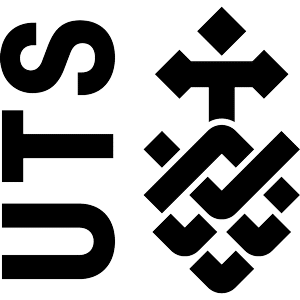Boost your health career with a public health graduate certificate. Study online in your spare time. Completed subjects may be used as credit towards further study.

By earning a graduate certificate, you can establish a platform for a fulfilling and impactful career. This four-subject course provides fundamental training in public health, a postgraduate qualification, and a pathway for further studies.
The course is suitable for individuals from diverse professional backgrounds and is open to anyone with a bachelor's degree. It is a potential avenue to a wide range of health-related careers. You can opt for a general program or specialise in fields such as communicable disease and health analytics.
Definition
First, let's define this study program. A Graduate Certificate of Public Health is a postgraduate course where students learn public health basics or specialty topics, covering fields such as epidemiology, disease control, and health analytics.
Graduates pursue careers in areas such as policy development, administration, epidemiology, biostatistics, and health promotion. They also have the option to continue their studies towards a related graduate diploma or master's degree.
The course is open to anyone with a bachelor's degree, regardless of profession. As a working professional, you can complete it fully online in 8 months of part-time study.
Why This Course Is Worth It

Going for a public health graduate certificate can be a career-defining move. Students come from diverse professional backgrounds, often with little or no prior experience in this field specifically. The course creates new opportunities.
The qualification will enhance your career prospects and increase your chances of success in roles with a strong public health focus. The same holds true for related specialisations such as epidemiology and health data analytics.
The demand for relevant expertise is increasing in Australia due to wellness challenges, a preventive health focus, regulations, and more data becoming available. The most in-demand public health practitioners include epidemiologists, data analysts, health promotion officers, environmental health officers, and public health nurses.
Value of a postgraduate qualification
Graduate certificates in any field offer a potentially high return at a relatively low cost. They are considered to be equivalent to a degree in many ways, including with respect to academic level.
Even if you have relevant experience, you may appear unqualified compared to other job candidates when you lack any formal certification. This postgraduate course is an effective way to expand your knowledge and capabilities while enhancing your credentials.
Related: Are Graduate Certificates Worth It in Australia?
Study Public Health Online
Studying online for a Graduate Certificate of Public Health is a convenient way to gain postgraduate qualifications. This program can be completed fully online in 8 months of part-time study, allowing students to balance education with full-time work and family commitments. Courses are designed to enable you to connect with instructors and classmates while maintaining flexible study hours.
Studying online for a Graduate Certificate of Public Health is a convenient way to gain postgraduate qualifications. This program can be completed fully online in 8 months of part-time study, allowing students to balance education with full-time work and family commitments. Courses are designed to enable you to connect with instructors and classmates while maintaining flexible study hours.
Communicable Disease Specialisation
An in-demand major in Australia and globally is communicable diseases. Students learn about diseases that spread through human populations, including how to prevent, detect, manage, and control transmission. Through key concepts and case studies, gain a foundational education in this field.
Health Analytics Specialisation

Understanding health analytics is beneficial if you're involved in healthcare management, policy or practice. You can build data analytics skills with a dedicated postgraduate course. Students learn how to use health data to improve patient outcomes and healthcare services delivery.
UTS Online - Health Analytics
The Graduate Certificate in Health Analytics is for professionals looking to develop knowledge and skills in using health data. Students learn to drive positive healthcare outcomes by evaluating and applying health research and data. Through this course, you’ll develop advanced skills in biostatistics, epidemiology and data visualisation, and learn how to use these tools to effectively evaluate the performance of healthcare systems. Developed with busy working professionals in mind, this course is delivered part-time and 100% online – meaning you can upskill without having to compromise your commitments. Tailor your studies with the option to progress into a Master of Public Health, and choose to major in data analytics, sub-major in leadership, or select from a range of advanced electives to transform your career goals.
What You'll Study (Course Structure)
The courses typically consist of four subjects. These may be core subjects or elective units chosen from the remainder of the postgraduate program. Common topics covered include: foundations of public health, epidemiology, communicable disease, health research, and biostatics.
With accelerated online courses, you complete each subject over a 6-7 week study period. By doing a new subject every couple of months, a grad cert can be completed in just 8 months of part-time study. You study as part of a virtual class and may have weekly assignments along with your classmates. The timing of when you study is fully flexible as most students are working professionals.
The UTS course is 24 credit points, which is equivalent to 4 subjects. One elective is included.
- Foundations in PH (3 CP) + Indigenous PH (3 CP)
- Fundamentals of Epidemiology (6 CP)
- Social Perspectives in PH (6 CP)
- Plus 6 credit points from the master's program.
This course is 24 credit points, which is equivalent to 4 subjects. All subjects are core (compulsory) subjects.
- Communicable Disease (6 CP)
- Foundations in PH (3 CP) + Indigenous PH (3 CP)
- Fundamentals of Biostatistics (3 CP) + Fundamentals of Qualitative Research (3 CP)
- Fundamentals of Epidemiology (6 CP).
The Health Analytics course is 24 credit points, which is equivalent to 4 subjects. One elective is included.
- Data Visualisation and Visual Analytics (6 CP)
- Fundamentals of Biostatistics (3 CP) + Fundamentals of Qualitative Research (3 CP)
- Fundamentals of Epidemiology (6 CP)
- Plus 6 credit points from the master's program.
Learning Outcomes
Learning outcomes depend on whether you're doing a general or specialised course. Nonetheless, you should come away with a good grasp of key issues in the discipline. Here are examples of capabilities you're likely to develop.
- Understands the roles and contributions of different fields to public health
- Can explain pivotal interactions between microorganisms and humans (or animals)
- Familiar with principles underpinning communicable-disease prevention and control
- Can identify key biases in epidemiological research and propose counter-measures
- Uses biostatistical analysis to evaluate the efficacy of healthcare practices.
You also have room for further advancement with continued training. A grad cert is often seen as a preparatory course, leaving the option to continue studying for a graduate diploma or masters.
Career Opportunities

A graduate certificate can help you transition to a new career or gain specialist qualifications. Public health professionals come from diverse backgrounds, including nursing and medical professions, law, psychology, data analysis, and public relations.
A postgraduate university qualification in the field, achieved in just 8 months of part-time study, can easily create new job opportunities and potential career paths. In the Australian qualifications framework, a grad cert is equivalent to an honours degree and graduate diploma.
Careers in public health are available in multiple disciplines, including epidemiology, biostatistics and data analysis, policy and management, environmental health, wellness communication and education, global health, maternal and child welfare, and healthcare services administration. Average salaries by discipline generally exceed six figures, with high-paying jobs such as public health nurse, epidemiologist, and health promotion officer.
Jobs can be found in organisations such as health departments, population health agencies, non-governmental research and policy organisations, and universities. Careers may focus on areas such as disease prevention and control research, program and policy formulation, program administration, promotional activities, and population research.
Entry Requirements
The entry requirements are essentially that you have a bachelor degree or higher qualification. The field is broad and open to professionals from diverse disciplines. Without academic qualification, you may still be eligible to enroll based on extensive experience in healthcare or human services.
Entry based on academic qualifications
To gain entry, applicants should have a bachelor's degree (or an equivalent or higher qualification) recognised by the University OR evidence of general and professional qualifications demonstrating the ability to succeed with postgraduate studies.
Entry based on professional experience
You may also be considered for course admission with extensive experience in a healthcare or human services field.
Recognition of prior learning (RPL)
Previous studies may be recognised as credit towards postgraduate studies provided that your prior learning meets relevant course requirements.
Tuition fees and FEE-HELP
Tuition fees for the four-subject course are $3,096 per subject in 2023.
FEE-HELP loans are available for eligible students to cover course fees. This Australian Government program provides loans that are paid gradually based on your annual income.
Key dates: The course has six intakes per year, occurring in Jan, Mar, May, July, Sep and Oct.
International students
As a fully online course, the program is unsuitable if you're an international student intending to study in Australia on a student visa.
English language requirements
For international students or local applicants with international qualifications, English proficiency requirements apply.
- Academic IELTS minimums: 6.5 overall with writing score 6.0; or
- TOEFL paper based: 550-583 with 4.5 TWE of 4.5; or
- TOEFL internet based: 79-93 with a 21 writing score of 21; or
- AE5: Pass; or
- PTE: 58-64; or
- C1A/C2P: 176-184 with a 179+.





